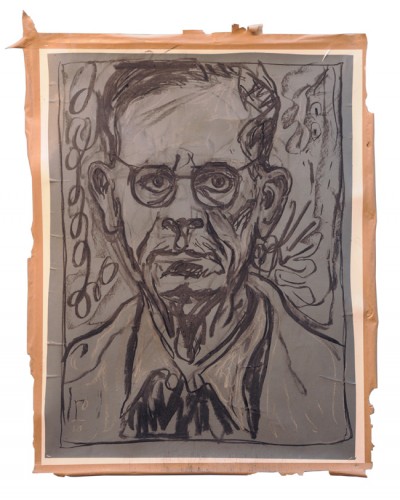12/03/2011
from recently discovered letters...
Seen on : http://www.guardian.co.uk/books/2011/mar/06/publishing-penguin
Global bestseller was turned down 60 years ago by British publisher

The story of how Hans Fallada's Alone in Berlin was rejected in 1948 has emerged in a letter found in Jerusalem
Dalya Alberge / The Observer, Sunday 6 March 2011
A novel that became a worldwide publishing phenomenon more than 60 years after it was first published in Germany was turned down by a British publisher in 1948, according to a rejection letter found in Jerusalem.
British readers had to wait until 2009 for the first translation of Hans Fallada's Alone in Berlin, a masterpiece about extreme fear under a dictatorship. It came out in Germany in 1947, weeks after the author's death at 53, following a life blighted by mental illness and morphine.
Penguin has sold more than 300,000 paperback copies of the book in 13 months, a sensational figure for foreign literature. In the US, where it appears under the title Every Man Dies Alone, sales have topped 200,000, while the book has been translated into 20 different languages. A major German feature film is also in the pipeline.
However, Putnam & Company, bought by Penguin in 1996, failed to see its potential, even though it had published Fallada's books in the 1930s.
Writing to a friend of Fallada – real name Rudolf Ditzen – who had submitted a specimen translation, a Putnam publishing director wrote: "I have the distinct impression that our poor author, after all his tribulations, had lost his inspiration. This is not to be wondered at, and it might have come back if he had only lived. Now we must regard this as one more of the countless war tragedies."
The letter, sent to an Austrian Jewish writer called Carl Ehrenstein, has come to light among unpublished papers deposited at the National Library in Jerusalem a few years ago.
The file went unnoticed until now because Fallada's name was unknown in Israel. The book has since become the number one bestseller there – selling 100,000 copies.
A newly appointed archivist noticed Fallada's name on an uncatalogued file. Dr Stefan Litt said he would never had given it a second glance two years ago because the author was unpublished in Israel, "but it was amazing to see in the light of [Alone in Berlin] becoming a world bestseller".
Professor Haggai Ben-Shammai, the National Library's academic director, suggested that the British public in 1948 might not have been ready for a German novel so soon after the war. "They were probably suspicious of the possibility that there are good Germans [or those] who really suffered," he said.
Alone in Berlin has become Penguin's bestselling classic, beating George Orwell, Jane Austen and Dickens.
On seeing the letter yesterday, Dennis Loy Johnson, the founder of Melville House Publishing, offered another explanation for his rejection in 1948 – that Fallada ended up in East Germany and Putnam may have assumed he was a Communist. But he added that the rejection letter "simply confirms my theory of the profound lack of editorial acumen" on the part of the world's major publishers. He said that George Putnam, the owner of the company that bore his name, had sent his own yacht in 1938 to urge Fallada to flee Germany. "It feels like a cold betrayal, doesn't it?" he said.
15:32 Publié dans Actualité, Eléments de biographie | Lien permanent | Commentaires (0)



